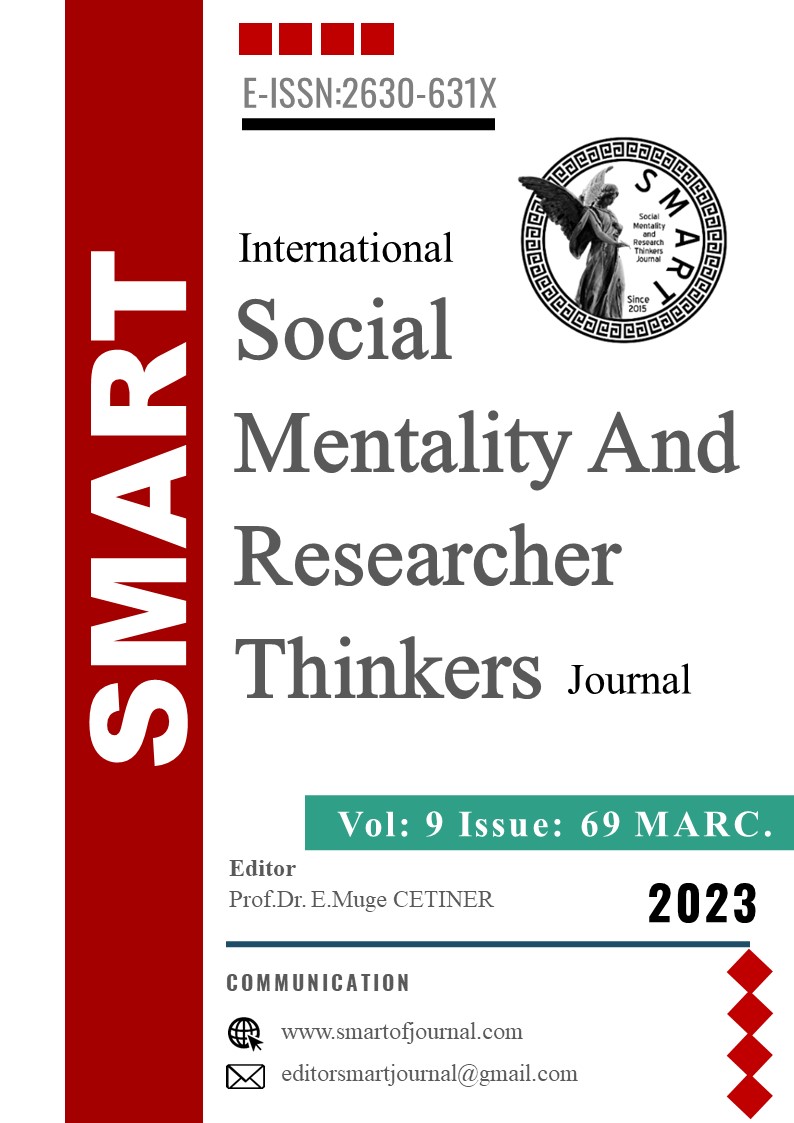Author :
Abstract
Amaç: Bu araştırma Sivas İlindeki kamu, özel ve üniversite olmak üzere üç ayrı hastanenin Sağlıklı Yaşam Biçimi Davranışlarını (SYBD) belirleyerek, bu davranışları etkileyen sosyodemografik özellikleri ortaya çıkarmak ve çalışanların görev ve sorumluluklarını yerine getirirken kendi sağlıklarına yönelik tutum ve davranışlarının farkına varıp, geliştirmelerini sağlamak, gelecekteki sağlıklı yaşam programı revizyonu ve/veya gelişimini ve sunulan sağlık hizmetlerinin kalite düzeyini ve verimliliğini artırmak amacıyla yapıldı. Araştırmanın Evrenini, Araştırmaya katılmayı kabul eden 326 çalışandan oluşturuldu. Araştırmanın verileri, “Veri Toplama Formu” ve “Sağlıklı Yaşam Biçimi Davranışları Ölçeği II” (SYBDÖ-II) kullanılarak toplanıldı. Anket formları vasıtasıyla toplanan verilerin bilgisayar ortamına aktarılmasında Statistical Package for the Social Sciences (SPSS 22.0) programı kullanılmıştır. Sağlıklı Yaşam Biçimi Davranışları Ölçeğinden alınan puanın yüksekliği sağlıklı yaşam biçimi davranışlarına önem verildiği ve sağlık davranışlarının olumlu olduğu anlamına gelmektedir. Araştırma sonucunda katılımcıların en yüksek alt ölçek puanını “manevi gelişim” alırken en düşük puanı “fiziksel aktivite” almıştır. Katılımcıların sağlıklı yaşam biçimi davranışları II ölçeği ve alt boyut düzeylerinin cinsiyete göre farklılık durumlarının belirlenmesi için yapılan bağımsız örneklem t-testi sonuçlarına göre, sağlık sorumluluğu alt boyut düzeyinin cinsiyete göre farklılığı istatistiksel olarak %95 güven düzeyinde anlamlı olduğu (p<0.05), kadınların (=2,35) sağlık sorumluluğu düzeylerinin erkeklere (=2,21) göre daha yüksek olduğu bulunmuştur. Sonuç olarak; çalışanların cinsiyet, medeni durum, çocuk sayısı, eğitim durumu, çalışma yılı, haftalık çalışma süresi, sigara içme durumu, sağlık durumu düzeyi, egzersiz yapma durumlarının sağlıklı yaşam biçimi davranışlarını etkilediği sonucuna ulaşılmıştır. Profesyonel sağlık çalışanlarının sağlıklı yaşam tarzı davranışlarına katılma becerilerinin güçlendirilmesi gerekli görülerek, katkı sağlanmıştır.
Keywords
Abstract
This study was conducted in three different hospitals in Sivas province, including public, private and university hospitals, to determine Health Promoting Lifestyle (HPL) and to reveal the socio-demographic characteristics affecting these behaviors. The aim was also to raise awareness among the employees about their own attitudes and behaviors towards their health while fulfilling their duties and responsibilities, to encourage them to improve their own health behaviors, and to revise and develop future healthy lifestyle programs and increase the quality and efficiency of the health services provided. The population of the study consisted of 326 employees who agreed to participate. The data of the study were collected using the "Data Collection Form" and " Health Promoting Lifestyle Profile" (HPLP-II). The Statistical Package for the Social Sciences (SPSS 22.0) program was used to transfer the data collected through survey forms into computer environment. A higher score obtained from the Healthy Lifestyle Behaviors Scale indicates that healthy lifestyle behaviors are valued and health behaviors are positive. As a result of the study, participants scored highest in the sub-scale of "spiritual development" and lowest in the sub-scale of "physical activity". According to the independent sample t-test results conducted to determine the differences in healthy lifestyle behaviors II scale and sub-dimensions according to gender, the difference in health responsibility sub-dimension by gender was statistically significant at the 95% confidence level (p<0.05). It was found that the health responsibility levels of women (=2.35) were higher than those of men (=2.21). Consequently; gender,marital status,the number of the possessed children ,education level,the working year,weekly working hours,smoking,the health conditions and the the amount of the physical exercise affect healthy lifestyle behaviours.This study has been conducted and contributed as it is considered a necessity for heatlhcare professionals to strengthen their skills to perform healthy lifestyle behaviours.





